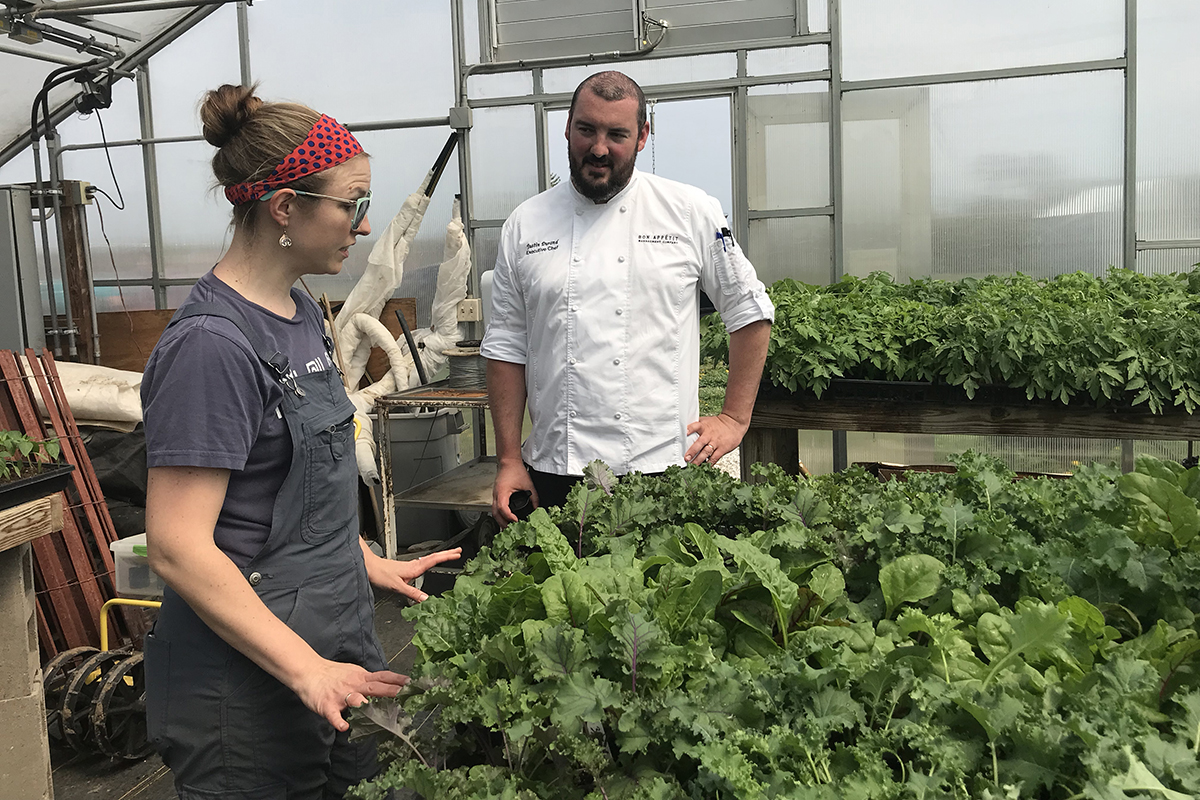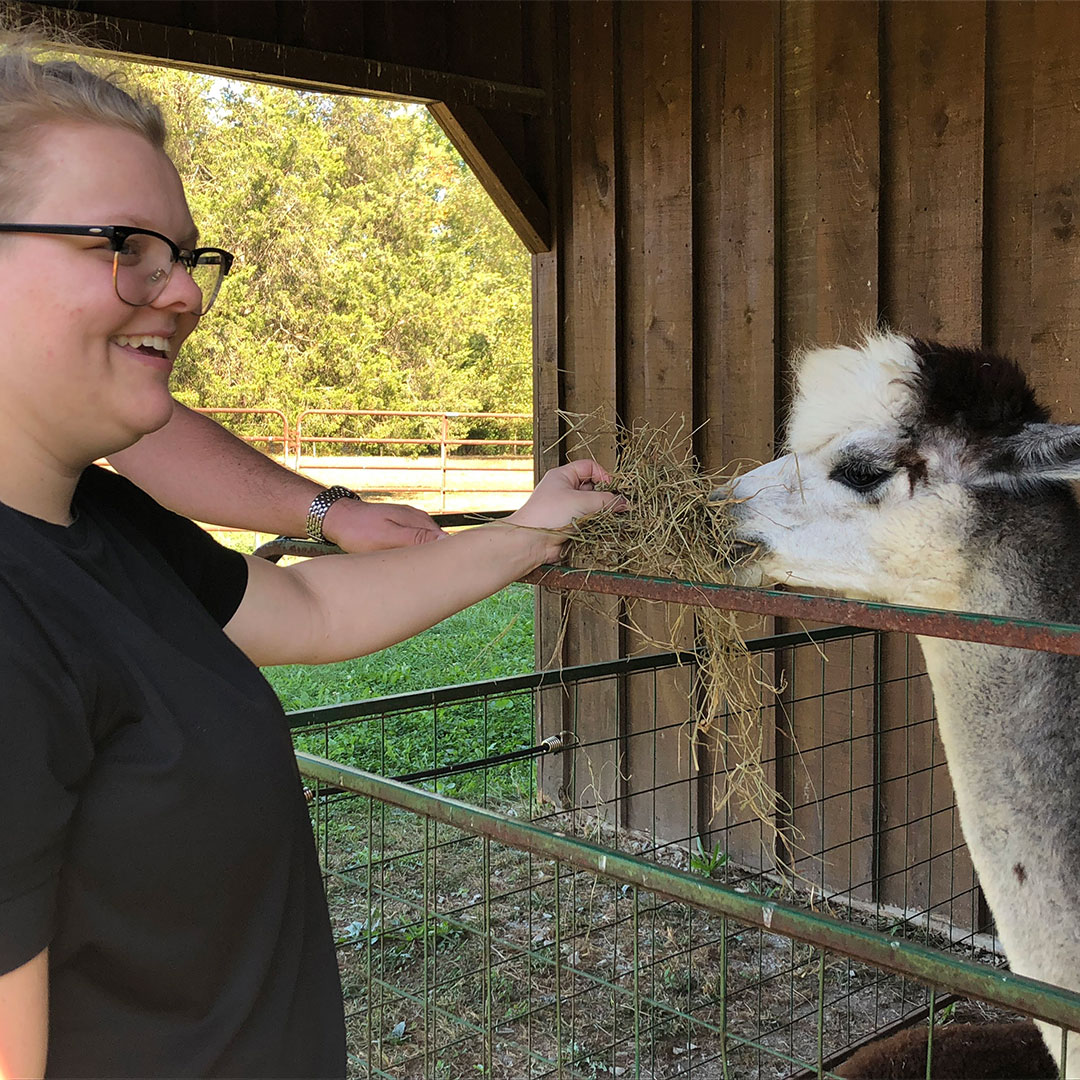Learning More about the White Violet Center for Eco-Justice

Garden Manager Candace Minster shows Justin Durand (then Rose-Hulman executive chef, now operations manager) around a White Violet greenhouse
The Bon Appétit team at Rose-Hulman Institute of Technology in Terra Haute, IN, loves to visit White Violet Center for Eco-Justice in nearby Saint-Mary-of-the-Woods. It’s not every day you get to pet an alpaca!

A Bon Appétiter from Rose-Hulman meets an alpaca up close
White Violet focuses on organic agriculture, spiritual ecology, and social advocacy. The centerpiece is a 5-acre farm on which they grow a wide variety of seasonal fruits and vegetables, including squashes, herbs, potatoes, garlic, and many pepper varieties, to sell to Bon Appétit, through a community-supported agriculture program, and at farmers’ markets. There are an additional 3 acres of forest and 90 acres of pollinator habitat. The farm doubles as a learning center, featuring public trails and educational events for the community.
White Violet Garden Manager Candace Minister explained that White Violet has a small staff with a lot of help from volunteers and interns. To manage the farm with limited hands and without the use of chemicals, the team has created several innovative systems to keep crops flourishing. For example, grass clippings from mowing the pathways are laid down in a thick layer across the bases of tomato plants as a weed barrier. Candace explained this method is more sustainable than traditional plastic tarp, which would have to be thrown away at the end of the season. After seeing fields of garlic, peppers, eggplant, and beans, the Bon Appétit team toured the farm’s greenhouses and learned about White Violet’s hydroponic system.
Following a scenic walk past the chicken coop and horse pastures, the tour concluded with a fan favorite: an alpaca meet and greet! The Bon Appétit team loved meeting the three alpacas (including a baby) that Candace led to a special petting pen for them. They all took turns feeding the alpacas clumps of hay and shared a lot of laughs learning about the animals. The alpacas were originally brought to White Violet as therapy animals for memory patients and ailing members of the community. Much of the wool from their 35 alpacas is used for textile products whose sale financially supports the center, and they are the subject of animal husbandry courses for the community.
Between their Certified Organic farming practices, radical reuse, and waste reduction, White Violet is at the forefront of sustainable gardening and farming practices.